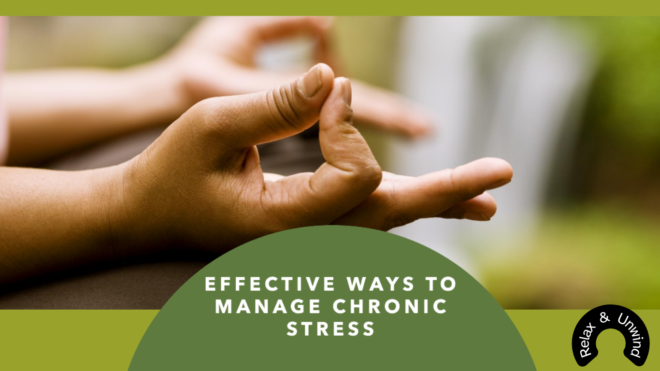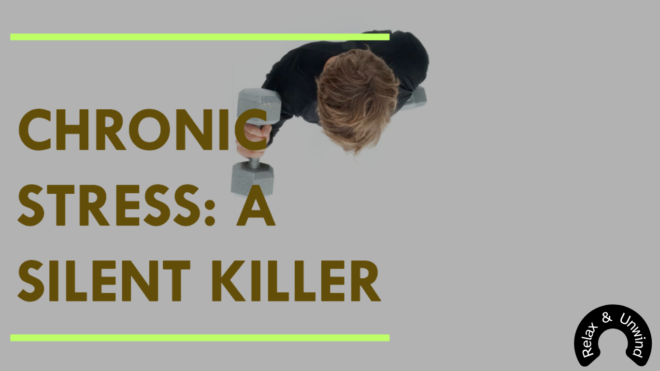Table of Contents
Chronic stress refers to a prolonged and persistent state of stress that can have detrimental effects on physical and mental well-being. Unlike acute stress, which is a normal response to immediate threats and challenges, chronic stress occurs over an extended period and can result from ongoing situations or conditions that feel overwhelming or unmanageable.
Stress won’t go away
If stress seems persistent and difficult to manage, it may be beneficial to explore additional strategies and consider seeking support from a healthcare professional. Here are some steps you can take:
- Professional Help
- Medication
- Mindfulness-Based Stress Reduction (MBSR)
- Cognitive Behavioral Therapy (CBT)
- Support Groups
- Evaluate Lifestyle Factors
- Regular Check-ups
- Reevaluate Expectations
- Holistic Approaches
- Journaling
- Resilience Building
Remember that treatment of chronic stress is a gradual process, and it’s okay to seek professional assistance when needed. A healthcare professional can provide personalized guidance based on your specific situation and needs. If you’re experiencing severe stress or mental health issues, don’t hesitate to reach out for help.
Treatment of Chronic Stress
A treatment of chronic stress is typically tailored to an individual’s specific needs and may involve a combination of strategies. It’s important to consult with healthcare professionals for personalized advice, but here’s a general outline of a treatment of chronic stress:
Assessment: Begin with a thorough assessment by a healthcare professional, such as a doctor or mental health specialist, to understand the severity of your stress and potential contributing factors.
Set Realistic Goals: Establish achievable short-term and long-term goals for stress reduction. Break down larger goals into smaller, manageable steps.
Therapy: Consider engaging in therapy, such as cognitive-behavioral therapy (CBT), which focuses on identifying and changing negative thought patterns and behaviors contributing to stress.
Medication (if necessary): Depending on the severity of symptoms, medication may be prescribed to manage anxiety or depression associated with chronic stress. Consult with a healthcare professional to discuss potential options.
Stress Management Techniques: Learn and practice stress management techniques, including relaxation exercises, deep breathing, meditation, and mindfulness. These techniques can help regulate the body’s stress response.
Physical Activity: Incorporate regular exercise into your routine, as it has been shown to reduce stress hormones and improve mood. Choose activities you enjoy to make it sustainable.
Healthy Lifestyle Changes: Adopt a well-balanced diet, prioritize sufficient sleep, and limit the intake of stimulants like caffeine and nicotine. A healthy lifestyle supports overall well-being.
Time Management: Develop effective time management skills to prioritize tasks and reduce feelings of overwhelm. Break tasks into smaller, more manageable steps.
Social Support: Cultivate a strong support network by maintaining connections with friends, family, or support groups. Share your feelings and experiences to receive emotional support.
Workplace Interventions: If work-related stress is a significant factor, explore interventions such as workload management, setting clear boundaries, or discussing concerns with supervisors.
Mindfulness and Relaxation Practices: Engage in mindfulness-based practices, such as meditation or yoga, to promote relaxation and build resilience to stress.
Self-Care: Prioritize self-care activities that bring joy and relaxation. This may include hobbies, reading, taking baths, or spending time in nature.
Monitor Progress: Regularly assess your progress and adjust the treatment of chronic stress as needed. Note changes in symptoms, stressors, and the effectiveness of interventions.
Crisis Plan: Develop a crisis plan outlining what steps to take in case of severe stress or worsening symptoms. This plan may include emergency contacts and coping strategies.
Regular Follow-ups: Schedule regular follow-up appointments with healthcare professionals to assess ongoing needs, adjust the treatment of chronic stress, and address any new challenges.
Strategies for Treatment of Chronic Stress
Treating chronic stress often involves a combination of lifestyle changes, self-care practices, and sometimes professional intervention. Several therapeutic approaches can be effective in treating chronic stress. It’s essential to find the right therapy or combination of therapies that suit your individual needs. Here are some common therapeutic approaches for managing chronic stress:
Therapies for Chronic Stress:
1. Cognitive-Behavioral Therapy (CBT):
CBT focuses on identifying and changing negative thought patterns and behaviors that contribute to stress. It helps individuals develop healthier coping strategies and improve problem-solving skills.
2. Mindfulness-Based Stress Reduction (MBSR):
MBSR incorporates mindfulness meditation and awareness techniques to reduce stress. It emphasizes staying present in the moment and cultivating a non-judgmental awareness of thoughts and feelings.
3. Dialectical Behavior Therapy (DBT):
DBT is often used to treat conditions like chronic stress, incorporating mindfulness skills, emotion regulation, interpersonal effectiveness, and distress tolerance techniques.
4. Acceptance and Commitment Therapy (ACT):
ACT aims to increase psychological flexibility by accepting difficult thoughts and feelings while committing to actions aligned with personal values. It helps individuals focus on what matters most to them.
5. Psychodynamic Therapy:
This form of therapy explores unconscious thoughts and past experiences that may contribute to stress. By gaining insight into these factors, individuals can work toward resolving underlying issues.
6. Biofeedback:
Biofeedback involves monitoring physiological functions such as heart rate, muscle tension, and skin temperature. Through this feedback, individuals learn to control their bodily responses, reducing stress levels.
7. Eye Movement Desensitization and Reprocessing (EMDR):
EMDR is primarily used for individuals with a history of trauma, but it can also be beneficial for chronic stress. It involves guided eye movements to process distressing memories and reduce associated stress.
8. Expressive Therapies:
Art therapy, music therapy, and other expressive therapies provide creative outlets for expressing and processing emotions related to stress. Engaging in these activities can promote relaxation and self-discovery.
9. Hypnotherapy:
Hypnotherapy involves guided relaxation and focused attention to promote a state of heightened suggestibility. It can help individuals explore and reframe thoughts and beliefs contributing to stress.
10. Relaxation Techniques:
Techniques such as progressive muscle relaxation, deep breathing exercises, and guided imagery can induce a state of relaxation, reducing physiological and psychological stress.
11. Counseling and Talk Therapy:
Engaging in regular counseling or talk therapy sessions with a qualified mental health professional provides a supportive space to discuss stressors, gain insight, and develop coping strategies.
12. Group Therapy:
Participating in group therapy sessions allows individuals to share experiences, receive support, and learn from others facing similar challenges. It can create a sense of community and understanding.
Medication for Chronic Stress:
Medications are not typically prescribed specifically for chronic stress since stress is a complex condition with psychological and lifestyle components. However, if chronic stress is accompanied by symptoms of anxiety or depression, healthcare professionals may consider prescribing medications. It’s essential to consult with a healthcare provider to determine the most appropriate course of action. Here are some classes of medications that might be considered:
- Antidepressants
- Benzodiazepines
- Beta-Blockers
- Buspirone
- Tricyclic Antidepressants (TCAs)
Professional Support:
Professional support doesn’t “cure” chronic stress in the way that antibiotics might cure a bacterial infection. Instead, professional support is aimed at helping individuals manage and cope with chronic stress more effectively. The goal is to reduce the impact of stressors, improve coping mechanisms, and enhance overall well-being.
Stress Management Programs:
Participate in stress management programs, which may include workshops, classes, or support groups. These programs can provide education and tools to better cope with stress.
Physical Activity:
Regular exercise has been shown to reduce stress hormones and trigger the release of endorphins, improving mood and overall well-being.
Healthy Lifestyle Changes:
Adopt a healthy diet, prioritize sleep, and limit the consumption of stimulants like caffeine and nicotine. A well-balanced lifestyle supports stress resilience.
Social Support:
Cultivate a strong support system by maintaining connections with friends, family, or support groups. Sharing your feelings and experiences can provide emotional relief.
Time Management:
Improve time management skills to reduce feelings of overwhelm. Break tasks into smaller, manageable steps and prioritize effectively.
Self-Care:
Prioritize self-care activities, such as taking time for hobbies, relaxation, and activities that bring joy and fulfillment.
Limiting Stressors:
Identify and address sources of chronic stress where possible. This may involve setting boundaries, delegating tasks, or making lifestyle changes.
Chronic Stress Recovery Time
The recovery time from chronic stress varies from person to person and depends on several factors, including the severity of stress, individual coping mechanisms, and the effectiveness of stress management strategies employed. Chronic stress is a complex issue, and its resolution often involves a combination of lifestyle changes, psychological interventions, and support systems. Here are some factors that affects the recovery time.
- Individual Differences
- Severity of Stress
- Support Systems
- Coping Strategies
- Professional Interventions
- Lifestyle Changes
- Self-Awareness and Reflection
- Medication
- Consistency in Practices
- Gradual Improvement
It’s essential for individuals experiencing chronic stress to be patient with themselves and to seek professional guidance if needed. A healthcare provider or mental health professional can offer personalized advice and support based on the specific circumstances. Remember that everyone’s journey to recovery is unique, and there is no one-size-fits-all timeline for overcoming chronic stress.
FAQs
How can I differentiate between everyday stress and chronic stress?
Chronic stress tends to persist over an extended period, affecting various aspects of life. If stressors and symptoms endure, it may indicate chronic stress.
Is medication the only solution for chronic stress?
No, medication is one of many options. Lifestyle changes, therapy, and holistic approaches play crucial roles in the treatment of chronic stress.
Can mindfulness practices be integrated into a busy schedule?
Absolutely. Brief mindfulness exercises, even during a busy day, can significantly contribute to stress reduction.
How important is social support in managing chronic stress?
Social support is pivotal. Having a strong support system provides emotional relief and aids in coping with the challenges of chronic stress.
Can chronic stress lead to long-term health issues?
Yes, chronic stress is linked to various health problems, including cardiovascular issues, digestive disorders, and mental health concerns.

